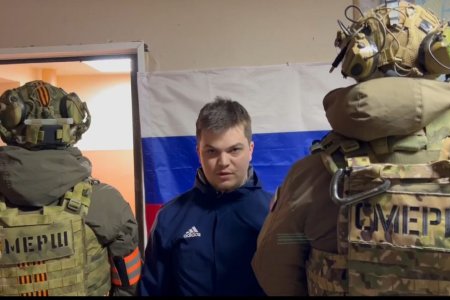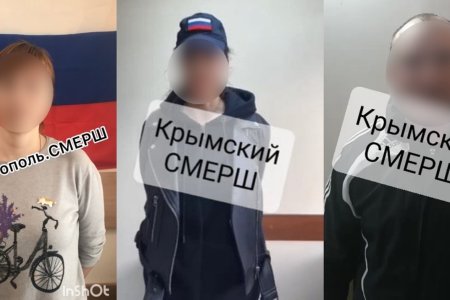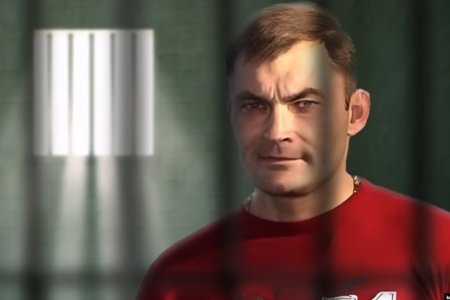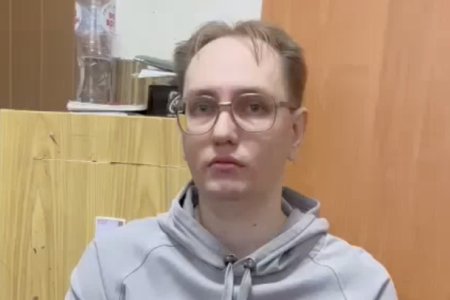
The regime of Russian leader Vladimir Putin has systematically reinstated Soviet-era denunciations in the Russian Federation and is trying to do the same in occupied parts of Ukraine. The Eastern Human Rights Group reported on 18 September that the Russian security service is trying to train residence of occupied Donetsk oblast to write denunciations against their neighbours. This is claimed to be a measure needed to fight ‘extremism’, a concept as broad and elastic as ‘spies’ and ‘traitors’ during the years of Soviet Terror.
The human rights activists report that such activities are encouraged by the ‘defence headquarters’ which the invaders establish on occupied territory. It is Rosgvardia, the Russian national guard acting as a kind of political police, which are initially involved in creating such units. Recruitment of so-called ‘informers’ is being ramped up, with residents encouraged to rat on each other in exchange for “the resolution of any issues”. In Stalin’s USSR, the ‘housing problem’ was one of the ‘issues’ that all too many Soviet citizens were prepared to ‘resolve’ through false denunciations against neighbours. The method was dangerously easy – denounce your neighbours and gain a chance to appropriate their apartments. Such ‘recruitment’ measures for fighting so-called ‘extremism’ also creates an atmosphere of fear. After all, if ‘extremism’ can mean just about anything, then neighbours could get in first and denounce you.
Ihor Semyvolos, Director of the Centre for Middel-East Studies, noted in February this year that Ukraine’s system of local self-government helped promote mutual trust and assistance among citizens. This was, he says, the first thing that the Russians set about destroying after seizing Ukrainian territory. One of the methods used consists of constant searches, etc. at which people are told that the person had been ‘denounced’ by neighbours.
It is far easier to control people who are terrorised and who do not know whom they can trust, and such methods began in occupied Crimea and, almost certainly, occupied Donbas, from 2014. In occupied Crimea, Russia has even prosecuted two Crimean Tatars for not denouncing a person they spoke with in a chat on social media.
The level of repression and of terror increased enormously in 2022, following Russia’s full-scale invasion of Ukraine. Russian legislators took just ten days to rush through draconian measures aimed at silencing any voices of protest and muffling the truth about its war crimes in Ukraine. As a result of such legislative repression, as well as of the general warmongering hysteria, teachers, colleagues and neighbours faced denunciations for opposing the war or speaking about Bucha, Mariupol or other sites of Russian crimes. Andriy Bielozierov , for example, lost his job as a lecturer in occupied Crimea and was later prosecuted after being denounced by students or their parents for playing a Ukrainian song.
In August 2022, Russia’s effective censor, Roskomnadzor announced that in the first half of the year it had received 145 thousand complaints from individuals, denouncing neighbours, colleagues, teachers or the media for supposed ‘fakes’ about Russia’s so-called ‘special military operation’, that is, its war of aggression against Ukraine. This, Roskomnadzor said, was 25% up on the analogous period the previous year.
The statistics coincided with the announcement from the so-called ‘mayor of occupied Sevastopol’ Mykhail Razvozhayev that a chat-bot had been created for denunciations of those supporting Ukraine. Harsh words like ‘denunciation’ are not, of course, used, with Razvozhayev proposing that Crimeans send “information about presumed danger; suspicious individuals; about everything that now, in one way or another impacts upon our security.” Tell us, he continued, if you see that somebody is supporting Kyiv. The information will be available to all enforcement bodies.
In occupied Crimea, most of the recent reports of persecution on charges of ‘discrediting the Russian armed forces’ or of ‘fakes’ have named notorious pro-Russian bloggers, Russian-installed politicians, etc. as the source of the denunciations.
In fact, Moscow may not trust Ukrainians on occupied territory to be ‘vigilant’. It appears to trying to reinstate another foul feature of the Soviet regime, namely the notorious Stalin-era SMERSH ‘counterintelligence’ units. In occupied Crimea, Crimean SMERSH, run by collaborator Aleksandr Talipov, claims to be “a civic initiative” but clearly works in close collaboration with the occupation ‘enforcement agencies’ to hunt down those with a pro-Ukrainian stand. There is every reason to believe that SMERSH units formed anywhere on occupied Ukrainian territory will be used as an additional weapon of terror directed against Ukrainian resistance and Ukrainian identity.
See: Moscow revives Stalin’s SMERSH to hunt down resistance in occupied Ukraine
Chilling déjà vu as Russia uses Crimean SMERSH to hunt down supporters of Ukraine in occupied Crimea



